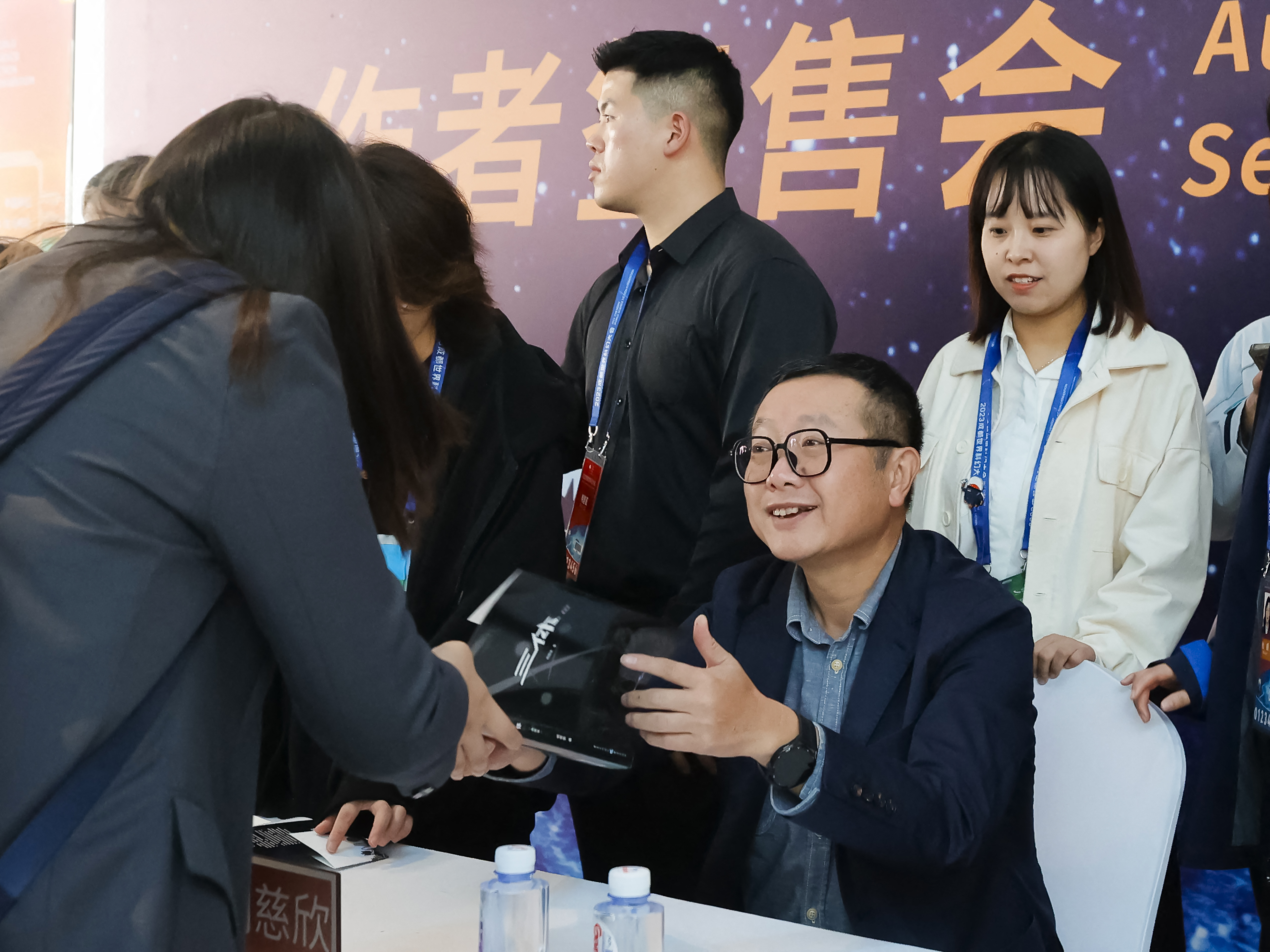
Fifteen years ago, editors of a Hungarian science fiction magazine invited me, as a sinologist, to contribute to a thematic issue that introduces Chinese science fiction literature through about a dozen short stories. During the presentation of the issue, my editor colleague, well-versed in international science fiction literature, stated that Chinese science fiction is not bad; it's worth getting acquainted with as a curiosity, but it will only become truly interesting in the future. Fifty years ago, Chinese science fiction was a hundred years behind international trends; twenty years ago, it was fifty years behind; now, in 2008, it is only twenty years or so behind the international field.
I don't know if he was right, or if it makes any sense to speak of the development of any literary genre as we would about the progress of medicine or space exploration. However, it is a fact that science fiction did not have much prestige or influence in China for a long time, and abroad, Chinese science fiction was virtually unknown. The only work from the first century of the genre that appeared in multiple languages was Lao She's novel entitled Cat Country, although this was more of a satirical dystopia than science fiction.
The main reason for this relative obscurity may have been that Chinese science fiction served political and educational purposes from the very beginning. In the late 19th century, reform intellectuals, including prominent figures like Lu Xun and Liang Qichao, began translating Western science fiction classics such as the works of Jules Verne or H.G. Wells into Chinese. Their goal was to spread the scientific outlook and the belief in the omnipotence of technological progress in China, thus contributing to the country's modernization. The early Chinese science fiction stories that emerged in the first decade of the 1900s portrayed a future China as an advanced, modern, and strong world power that had long abandoned its imperial traditions and backwardness. Even with the change in the language of sci-fi writings after the May Fourth Movement of 1919 – transitioning from classical Chinese to modern spoken language – the emphasis on didactically highlighting the importance of scientific progress remained, except for the 1933 Cat Country mentioned earlier. After 1949, although the ideology changed, the role of science fiction did not; it began to be considered a branch of youth literature that popularized the scientific outlook. During the Cultural Revolution, even this was banned.

The "reform and opening" beginning in the late 1970s marked a new era for Chinese science fiction. While the literary circles still did not hold the genre in high regard, a broad subculture emerged. Western works, previously inaccessible to Chinese readers, were translated into Chinese, and a series of Chinese science fiction writers appeared, bringing with them a variety of themes and styles. In the 1990s, the magazine Science Fiction World (Kehuan Shijie), the flagship of the genre, reached a circulation of 400,000, and the "Three Generals of Chinese Sci-fi," namely Liu Cixin, Han Song, and Wang Jinkang, became unwavering authorities in the eyes of fans.
However, it wasn't until the 2010s that science fiction truly became a mass genre, with the release of Liu Cixin's now globally famous Three-Body Problem trilogy. Despite its pessimistic storyline, or exactly because of it, including the destruction of Earth's civilization and the extinction of humanity except for a few survivors, the trilogy was incredibly successful. Its impact extended far beyond science fiction enthusiasts, becoming an international bestseller.
The success of the Three-Body Problem, both in China and internationally, brought attention to Chinese science fiction. Not only did Liu Cixin become an international star, but following him, several other Chinese science fiction authors gained recognition. Living in the USA, Ken Liu played a key role by not only publishing his own works but also contributing significantly as a translator and editor to the success of Chinese science fiction. Thanks to him, Chinese star authors are now available in English and actively participate in the international science fiction scene.
The breakthrough is evident as Chinese science fiction works began to be adapted into other genres. A film adaptation of Liu Cixin's novel The Wandering Earth was made available on Netflix. Moreover, not only was a Chinese series based on the Three-Body Problem created, but Netflix also produced its own version, scheduled to be released in 2024. It is now clear: Chinese science fiction has finally caught up with its centuries-old lag.
The author is a senior researcher at the Hungarian Institute of Foreign Affairs and head of the Department of Chinese Studies at the Pázmány Péter Catholic University